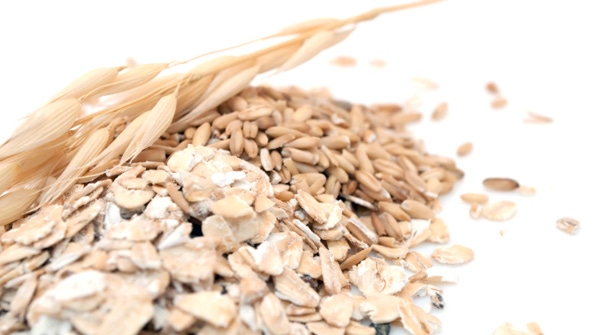NAMA and NAWG submit comments urging EPA to allowed continued use of glyphosate for agricultural crops.

The Environmental Protection Agency (EPA) is seeking public comment on a September 2018 petition from several special interest groups to reduce the tolerance of glyphosate in or on oats and requiring glyphosate-containing product labels to explicitly prohibit preharvest use on oats. The National Association of Wheat Growers (NAWG) and North American Millers Assn. (NAMA) urged the agency to reject the petition.
The petition was filed by the Environmental Working Group (EWG), Ben & Jerry's Homemade, Inc., Happy Family Organics, MegaFood, MOM's Organic Market, National Co+op Grocers, Nature's Path Foods Inc., One Degree Organic Foods USA, Inc., and Stonyfield Farms, Inc. requesting that the agency reduce the tolerance of the pesticide glyphosate in or on oats and require glyphosate-containing product labels to explicitly prohibit preharvest use on oats.
As part of the Federal Register notice, as part of their petition, the petitioners have submitted results of residue testing from the EWG of glyphosate levels in various granola, instant oat, breakfast cereal, and snack commodities. “The petitioners claim that glyphosate is a possible carcinogen and that the current 30 ppm glyphosate tolerance on oats is not adequately protective of children. In addition, the petitioners request revisions to glyphosate labels that they believe will reduce the potential for children's dietary exposure to glyphosate in oat products,” the Federal Register noted.
The comments from NAWG noted, the data provided in this docket shows that residues found in food tested were significantly below the EPA’s approved safe tolerance level. “These tested products listed in the docket were not close to reaching the approved tolerance level and would require massive and impossible daily food consumption rates to come close to reaching the tolerance level established by the EPA,” they said.
“While NAWG’s mission does not include representing oat producers, its members believe it’s important to provide comments on this Docket as it impacts EPA’s review of pesticides,” NAWG President and Lavon, TX farmer Ben Scholz said in a statement.
“In its submission, NAWG urged the EPA to reject this petition in its entirety. The issues raised in this petition have been considered under the current pesticide review and labeling, and the requested action by the Agency is not necessary,” Scholz added. “Further, EPA’s work to review and regulate the chemistry of pesticides should not be dictated by special interest groups who have an alternative agenda but rather should continue to be based on science and facts, as the EPA currently operates.”
NAWG said it supports the U.S. Government’s regulatory process of pesticides because it is based on thorough scientific review, has resulted in crop protection tools that are safe for grower use, and farm worker use, and food produced from these tools is safe for human consumption, including consumption by children.
NAWG members urged the EPA not to act to modify product labels and head down a path of listing uses that are “explicitly prohibited,” but rather maintain an approach of providing approved uses on the product label. Farmers already know the importance of safe handling and application of pesticides and meeting federal and state requirements for their use.
“The requests of this petition are covered in current pesticide review and labeling, and action by the EPA is not necessary,” NAWG said.
NAMA stated that we, “…believe the EPA needs to look no further than its announcement and proposed decision of April 30 for the science-based justification to reject the EWG petition.” The comments also noted that: “The health and safety of our consumers is the top priority for the milling industry as we deliver safe, nutritious, convenient, and affordable milled grain products to hundreds of millions of people around the world every day. To successfully achieve that goal, the grain value chain uses numerous strategies, such as conventional farming practices, that help farmers reduce their environmental footprint while producing a high yielding, higher quality crop.”
NAMA added: “It is important to note that the milling industry does not use or add glyphosate at any point during the milling process.”
About the Author(s)
You May Also Like



.png?width=300&auto=webp&quality=80&disable=upscale)

